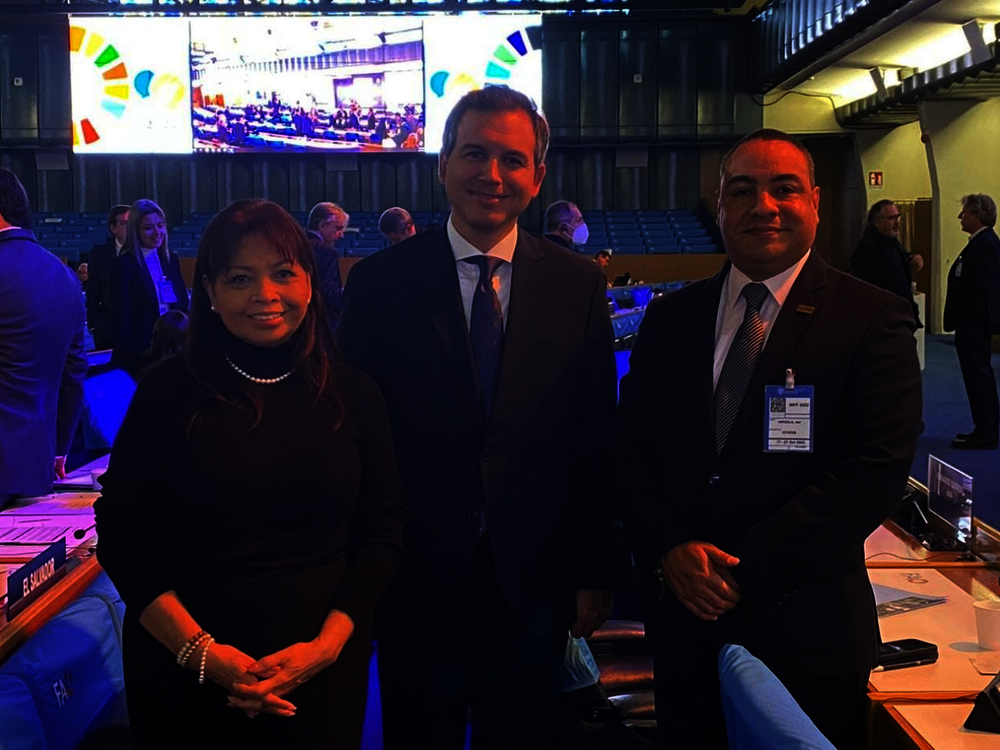At the Global Hand in Hand Investment Forum organized by FAO in Rome, CABEI presented climate change initiatives promoted in the region

One of them is the Central American Dry Corridor Program, which aims to improve the countries' capacity to adapt to the adverse effects of climate events.
Rome, October 25th, 2022.- The Hand in Hand Global Investment Forum, organized by FAO in Rome, was positioned as a platform for the national authorities of the region's countries to present investment opportunities to corporations, multilateral banks and donors, focusing on the growth potential of the agricultural sector and commercial opportunities in the countries. The Central American Bank for Economic Integration (CABEI) presented the initiatives it is promoting that have a high potential to reduce the level of climate vulnerability and positively impact economic and social development in the region.
"Through regional programs such as CABEI, we contribute to reducing the climate problem and, specifically, food insecurity in our countries. Over the years, we have also identified opportunities through technical cooperation and other financial mechanisms to develop bankable projects to address these problems, which are increasingly affecting our countries. A clear example of this is the impact and effects of Hurricane Julia, which left significant economic and human losses in Nicaragua, Honduras, El Salvador and Guatemala," said CABEI Executive President, Dr. Dante Mossi.
During the event, CABEI also highlighted its role in mobilizing financing to address the needs of countries facing extreme weather events and presented one of its regional initiatives: the Central American Dry Corridor and Arid Zones Program in the Dominican Republic. This operation, promoted by the countries of the region, has the participation of the Green Climate Fund (GCF) and will increase the resilience of more than 2.4 million people living in this region.
The Central American Integration System (SICA) institutions, such as the Central American Agricultural Council (CAC) and the Central American Commission for Environment and Development (CCAD), participated in the activity. The countries also presented profiles of projects with the potential for significant climate impact, which could be supported by CABEI and other financiers to develop investment operations that contribute to improving the current situation of food insecurity in the countries of our region, as well as the livelihoods and living conditions of vulnerable populations in Central America.



